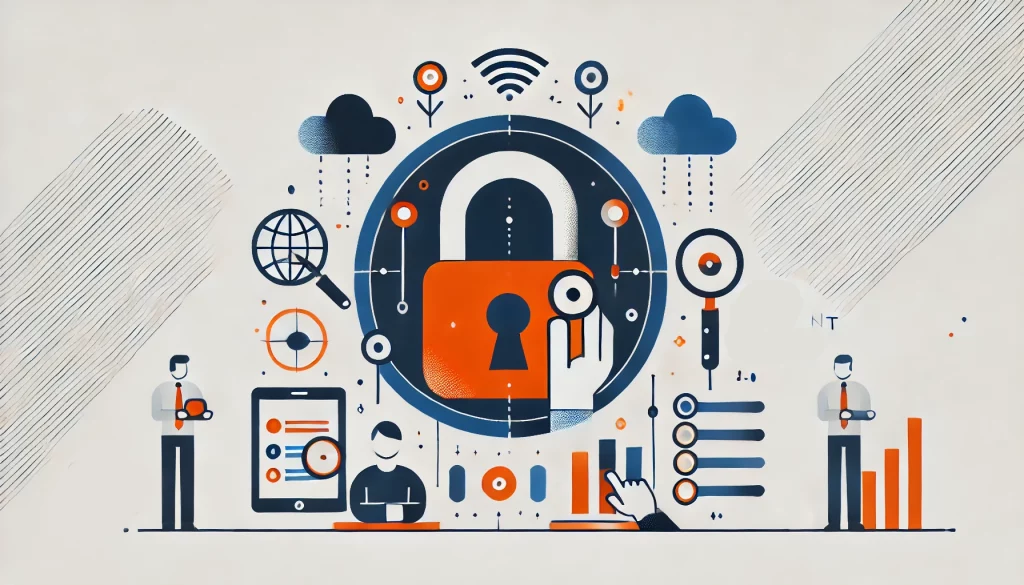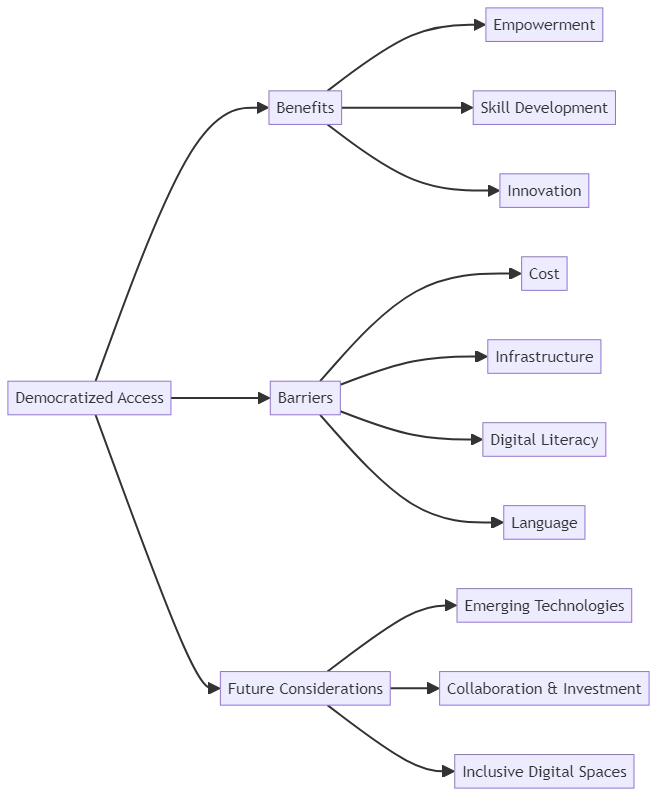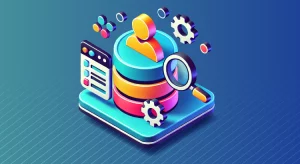
The Impact of Democratized Access

Introduction
In today’s rapidly evolving digital landscape, the concept of democratized access has emerged as a powerful force for change. It refers to the idea that technology and information should be accessible to everyone, regardless of their background, location, or socioeconomic status. Equal access can change lives and promote innovation globally by removing obstacles and providing necessary tools for success.
The Power of Democratized Access
Democratized access is about more than just providing people with technology. About leveling the playing field and giving everyone an equal opportunity to participate in the digital economy.

When people have access to the same tools and resources, they can:

By democratizing access to technology, we can unlock the full potential of individuals and communities around the world.
Breaking Down Barriers
Despite the many benefits of democratized access, significant barriers still exist. These include:
- Cost: High-quality technology and internet access can be expensive, putting them out of reach for many people.
- Infrastructure: In many parts of the world, the necessary infrastructure for reliable internet access simply doesn’t exist.
- Digital literacy: Some people may not know how to use technology properly, even if they have access to it.
- Language: Most online content and resources are in English, creating a barrier for non-English speakers.
To truly democratize access, we need to address these barriers head-on. This requires investment in affordable technology, expansion of internet infrastructure, digital literacy education, and the creation of multilingual content and resources.
Examples of Democratized Access in Action
Around the world, organizations and individuals are working to democratize access to technology and information. Here are just a few examples:
One Laptop per Child
The One Laptop per Child (OLPC) initiative aims to provide low-cost, durable laptops to children in developing countries. OLPC helps kids by giving them technology and educational tools, bridging the digital gap, and offering new learning opportunities.
Wikipedia
Wikipedia is a free online encyclopedia that anyone can edit. It has over 55 million articles in 300+ languages, making it a top source of information globally. By democratizing access to knowledge, Wikipedia is empowering people to learn, share ideas, and make informed decisions.
Khan Academy
Khan Academy is a non-profit organization that provides free online education to anyone, anywhere. It offers over 6,000 video lessons and practice exercises on various subjects like math, science, history, and economics. It provides high-quality education to learners worldwide.
The Future of Democratized Access
As technology continues to evolve at a rapid pace, the possibilities for democratized access are endless. New technologies like AI, blockchain, and IoT can benefit people worldwide by removing obstacles and opening new opportunities. These technologies can remove obstacles and create new opportunities for people worldwide.
However, realizing the full potential of democratized access will require ongoing collaboration and investment from governments, businesses, non-profits, and individuals. We need to work together to:
- Develop affordable, accessible technologies that meet the needs of diverse communities
- Invest in digital infrastructure and expand internet access to underserved areas
- Provide digital literacy education and support to help people navigate the digital world
- Create inclusive, multilingual online spaces that welcome and empower all users
Conclusion
Democratized access is a powerful tool for empowering individuals and communities around the world. We can make new chances for creativity and progress by removing barriers and giving everyone the tools they need. This will allow individuals to thrive and reach their full potential. As a result, we can expect to see new ideas and advancements emerge in various fields.
In the future, easy access for everyone will be important in shaping our digital world. By working together to create a more inclusive, accessible digital world, we can build a brighter future for all.
